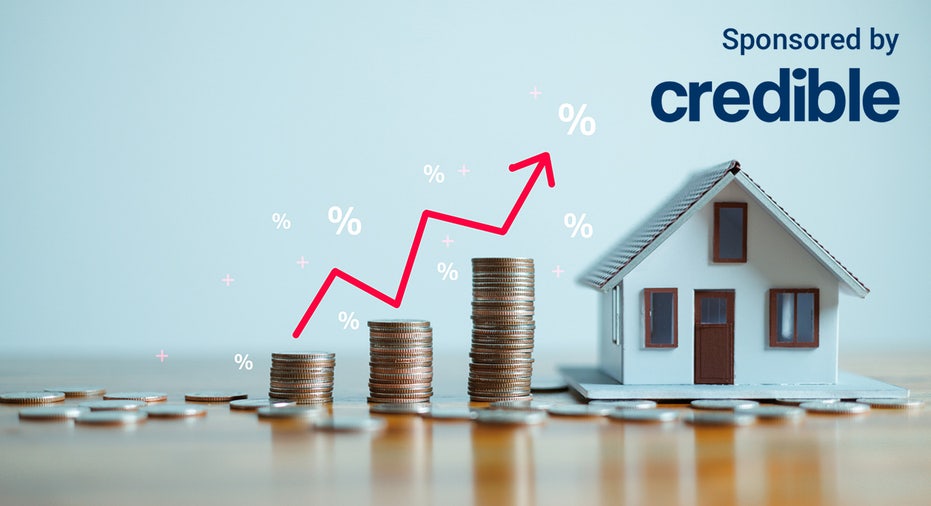
The proposed increase would go into effect at the beginning of 2025, if approved. (iStock )
More bad news is on the horizon for Florida homeowners. On top of insurers pulling out of the state altogether, Florida’s state-created Citizen’s Property Insurance just voted to raise rates by 14% across the state.
The board of governors for the insurance corporation voted unanimously earlier in June. Raising the rates by 14% is dangerously close to the maximum rate increase allowed by the state. Homeowners should be prepared to see their rates rise beginning next year, should the change officially take effect. Currently, this is just a recommended rate increase. The official increase still needs to be approved by the state Office of Insurance Regulation.
"The news today will be about the rate increase," Scott Thomas, a board member, said at the meeting. "But to me, the real story is that the uncapped, indicated rate is so much lower than it was just a year ago. That’s a phenomenal change."
Should it be approved, the rate change would go into effect January 1. The average rate hike would be 13.5%, but the rates each homeowner will pay varies by property type and county.
Investment property owners and those with non-primary homes are also expected to see rate hikes even higher than 14%. These home types aren’t subject to the same regulations, so owners could see an 18% rise for homes and a 15% rise for condos.
To ensure your homeowners insurance is suitable for your circumstances and your price range, visit Credible to check out plans, providers and costs.
U.S. property insurers faced $21.2 billion in losses last year
Insurance rates are rising across the country largely because insurance companies have faced significant losses in the last year. In total, the U.S. property/casualty industry faced over $21 billion in underwriting losses in 2023 alone, A.M. Best reported.
The $21 billion in losses is a slight improvement from the $24.9 billion in losses recorded in 2022, but insurance companies are still passing these losses onto customers in the form of higher premiums.
Throughout 2023, insurance companies raised premiums across the country by more than 11%, on average, according to S&P Global Market Intelligence.
A rise in natural disasters has led to a huge influx of claims insurance companies aren’t prepared to handle, resulting in these losses. Between hurricanes, flooding, wildfires and tornadoes, natural disasters are causing billions in damage. Some states have seen such a high uptick in natural disasters that insurers are pulling out of these states altogether and pausing any new policies.
"While a lot of these storms don't make national headlines, they do tend to be very costly at the local level," Tim Zawacki, principal research analyst for insurance at S&P Global Market Intelligence said. "And the breadth of where these storms are occurring is something that I think the industry is quite concerned about."
California and Florida have been hit the hardest and have seen the largest number of insurers raising rates or leaving. Florida is particularly susceptible to damaging hurricanes, while California faces floods and wildfires regularly.
With different coverage amounts, it’s important to shop around to find the right home insurance plan that fits your needs. Visit Credible to start the process and maximize the value you gain from your homeowner’s policy.
FORECASTERS PROJECT ACTIVE HURRICANE SEASON AS HOMEOWNERS REMAIN UNPREPARED FOR DAMAGES
Housing prices have hit an all-time high
Adding to the costliness of homeownership is record-high housing prices, on top of surging home insurance costs. There was an annual gain of 6.3% in home prices in April, according to the S&P CoreLogic Case-Shiller U.S. National Home Price NSA Index.
"For the second consecutive month, we've seen our National Index jump at least 1% over its previous all-time high," Brian D. Luke, Head of Commodities, Real & Digital Assets at S&P Dow Jones Indices said. "2024 is closely tracking the strong start observed last year, where March and April posted the largest rise seen prior to a slowdown in the summer and fall."
"Heading into summer, the market is at an all-time high, once again testing its resilience against the historically more active time of the year," Luke continued.
Cities are facing much higher price increases than other parts of the country, as the pandemic winds down and buyers are heading back into the city. The most unaffordable cities within the U.S. mostly reside in California, a Chapman University housing affordability study found. San Jose ranked as the least affordable market, followed by Los Angeles, San Francisco and San Diego. Outside of California, Honolulu ranked as one of the least affordable cities in the country.
Comparing multiple home insurance quotes can potentially save you hundreds of dollars per year. It’s easy to get a free quote in minutes through Credible.
TOP 10 CITIES WHERE RENTERS PAY MORE THAN HOMEOWNERS – AND WHERE THEY PAY LESS
Have a finance-related question, but don't know who to ask? Email The Credible Money Expert at [email protected] and your question might be answered by Credible in our Money Expert column.




